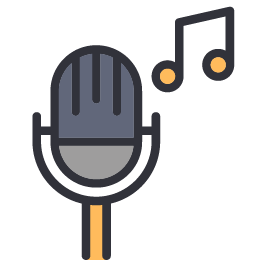How to Create Personalized Lesson Plans That Inspire Progress
Creating personalized lesson plans is a vital skill for vocal teachers who want to inspire real progress in their students. Every singer is unique, with different strengths, challenges, goals, and learning styles. A one-size-fits-all approach often leaves students frustrated or stagnant. Instead, tailoring your lessons to meet the individual needs of each student not only accelerates their development but also keeps them motivated and engaged. This blog explores how to design effective, personalized lesson plans that foster growth and enthusiasm.
Understanding Your Student’s Goals and Needs
The foundation of any personalized lesson plan is a clear understanding of the student’s goals. Begin by having an open conversation with your student about why they want to learn to sing. Are they preparing for auditions, building confidence, or simply exploring a new hobby? Identifying their motivations helps shape lesson content and pacing. Equally important is assessing their current skill level and any specific challenges they face, such as breath control or pitch accuracy. A thorough initial assessment sets the stage for targeted instruction.
Adapting to Different Learning Styles
Students absorb information in various ways. Some learn best through listening, others through visual aids or hands-on practice. By identifying your student’s preferred learning style, you can adapt your teaching methods to maximize comprehension and retention. For auditory learners, focus on listening exercises and vocal demonstrations. Visual learners benefit from diagrams, written notes, and videos. Kinesthetic learners thrive when actively engaged through movement and physical vocal techniques. Flexibility in your approach ensures that students connect with the material on a deeper level.
Setting Clear, Achievable Objectives
Well-defined objectives provide direction and measurable milestones for both teacher and student. Break long-term goals into smaller, achievable steps that can be accomplished within a few lessons. For example, if a student wants to improve vocal range, an initial objective might be to expand their comfortable singing range by a half octave. Setting realistic, specific goals helps students experience consistent success, which fuels motivation and confidence.
Incorporating Variety and Fun
Monotony can quickly lead to disengagement. Personalize lessons by including a variety of activities that target different aspects of singing, such as breathing exercises, vocal warm-ups, sight-reading, and repertoire practice. Mix technical drills with songs the student enjoys to maintain enthusiasm. Introducing games, challenges, or improvisation can also make lessons more interactive and enjoyable. When students have fun, they are more likely to practice regularly and stay committed.
Building on Strengths While Addressing Weaknesses
A balanced lesson plan acknowledges both what a student does well and where improvement is needed. Celebrate strengths to boost confidence, while designing exercises that specifically target weaknesses. For example, a student with strong pitch but poor diction might work on articulation drills alongside melodic practice. This dual focus prevents discouragement and fosters well-rounded vocal development.
Tracking Progress and Adjusting Plans
Regularly reviewing progress is essential to keep lessons effective and aligned with the student’s evolving needs. Use recordings, self-assessments, and performance feedback to monitor improvement. Be prepared to adjust lesson plans if goals are met ahead of schedule or if a student struggles with certain concepts. Flexibility in pacing and content ensures that instruction remains relevant and challenging without becoming overwhelming.
Including Vocal Health Education
Personalized lesson plans should also incorporate education about vocal health. Teach students how to recognize signs of strain, the importance of proper warm-ups, hydration, and rest. Tailoring vocal health advice based on the student’s lifestyle and vocal demands helps prevent injury and supports sustainable singing habits.
Encouraging Independent Practice
Effective lesson plans empower students to practice independently between sessions. Provide clear, manageable practice routines customized to the student’s schedule and skill level. Offer guidance on how to use tools like metronomes, recordings, and apps to support practice. Encouraging self-motivation builds discipline and reinforces skills learned in lessons.
Using Technology to Enhance Personalization
Modern technology offers valuable resources for personalized teaching. Record lessons so students can review techniques and exercises at home. Use apps for pitch training, rhythm practice, and vocal health monitoring. Virtual lessons provide flexibility and enable access to specialized instruction regardless of location. Integrating technology into your lesson plans enhances learning opportunities and convenience.
Fostering a Positive and Supportive Relationship
The teacher-student relationship significantly impacts progress. Create an environment of trust and encouragement where students feel comfortable taking risks and making mistakes. Personalize your communication style to suit the student’s personality, and provide constructive feedback that motivates rather than discourages. A strong rapport inspires dedication and a positive attitude toward learning.
Adapting Lesson Plans Over Time
As students grow and their skills develop, lesson plans should evolve accordingly. Periodically reassess goals, update objectives, and introduce more advanced material to challenge and inspire. Encouraging students to set new goals keeps their learning journey dynamic and engaging.

